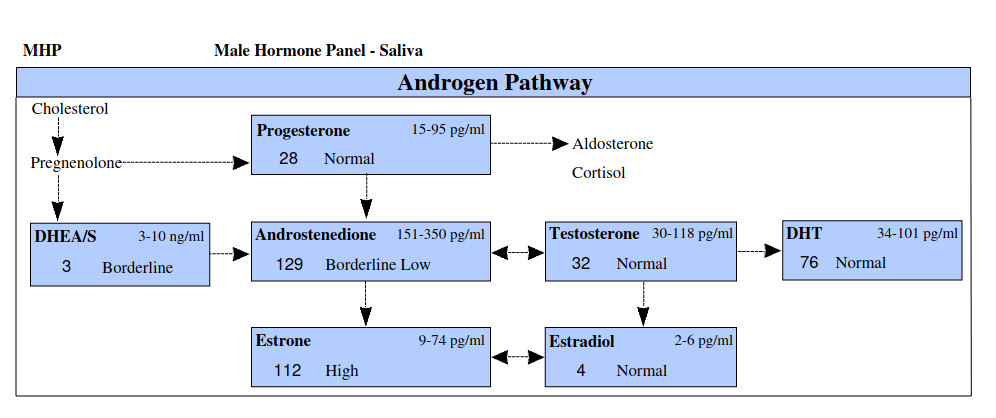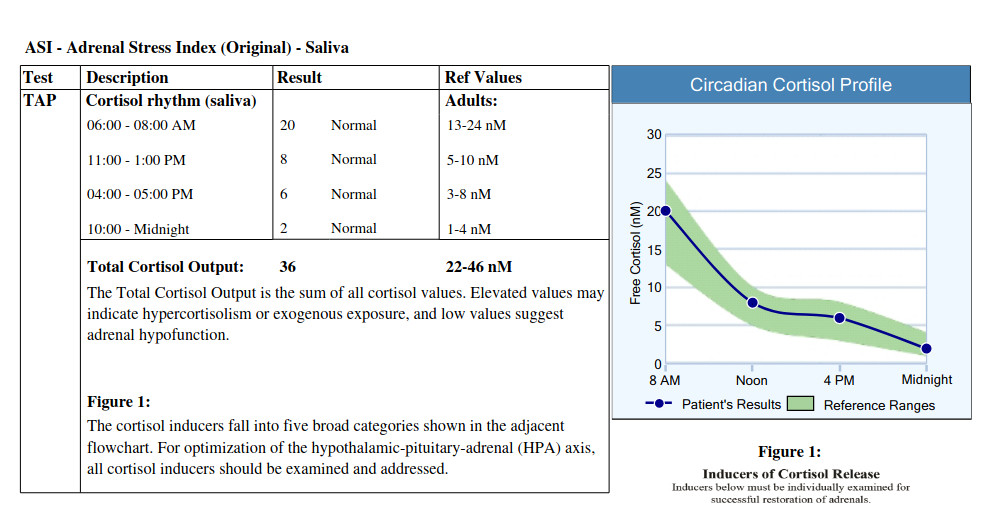Causes of PMS and PMDD
In natural health we can understand what causes symptoms and treat it. Below I review the most common reasons women get PMS symptoms. Ideally, it is best to work with a natural health care practitioner who can review your case and do tests to figure out the specific cause of your symptoms.
Toxicity, the liver and estrogen
Many symptoms of PMS are due to estrogen excess. Estrogen may not be elevated during the whole cycle. Fluctuations during short periods of the cycle can cause symptoms.
Symptoms of estrogen excess:
- Bloating
- Water retention
- Very heavy bleeding
- Cramps
- Breast pain
The ovaries make estrogen, then the liver breaks it down and detoxifies it. If the liver is sluggish, then estrogen builds up causing symptoms. Therefore, the liver may need support to treat PMS.
From a certain point of heavy bleeding and cramps comes from the body trying to protect itself. If we have too many toxins for the liver to process, the body uses other methods of detoxification. The period gives women and an excellent auxiliary route of elimination. They can bleed toxins out. The naturopathic treatment is thus to aid the body, so it no longer needs to do this.
Why see a Naturopathic doctor for detoxification?
There are many supplements that aid the liver in detoxification and help PMS. Common examples are DIM, NAC and milk thistle. So why not just take those supplements? What’s the point in seeing someone?
When working with clients I do not simply hand out general advice. If working on detoxification anything I do will be based upon the totality of my clients symptoms, along with in office evaluation and lab tests to created a plan specific for them.
Digestion and gut dysbiosis
Gut dysbiosis refers to the balance of bacteria, yeast and other microbes in the digestive tract.
After the liver detoxifies estrogen it’s still not out of your body. It has to travel through the digestive system and is eventually excreted in the stool.
Some bacteria in the gut make and an enzyme called beta-glucuronidase. This causes the absorption of estrogen back into the body. Thus, working on gut health, diet, and possibly taking probiotics is part of treating PMS.
There are other ways dysbiosis can contribute to PMS. Yeasts such as Candida release toxins which put an extra burden on liver detoxification. Fermentation of foods in the upper GI system (caused by SIBO) also put extra stress on the liver and cause other symptoms such as brain fog and fatigue.
Plastics and xeno-estrogens
It is not just the estrogen that your body makes that needs to be eliminated. Over the past few decades our society has become bombarded with environmental toxins that mimic estrogen. The most well known of these is BPA (bisphenol A). Industrial toxins that act like estrogen in the body are called “xeno-estrogens.”
Other estrogen mimicking toxins:
- The pesticides DDT and DDE
- Polychlorinated biphenyl (PCB)
- Polychlorinated phenols (PCP)
- Dieldrin
- Chlordane
It’s hard for the body to break down these chemicals. Over time they become stored in fat cells. Learning how to avoid these toxins and taking steps to eliminate those we have exposed to is essential
for good hormonal health.
Some people may think that taking supplements and doing extra things for detoxification isn’t natural. They say all we need is a “good diet.” Maybe that was true 200 years ago. The way it is now, we are not living in a naturally world. We are surrounded with synthetic chemicals and our bodies need help to get rid of them.
Hypothyroidism
Low thyroid hormone slows down your whole body. It can also make PMS worse. Hypothyroidism often goes undiagnosed. There are numerous causes from hypothyroidism. Three of the more common causes are:
- Autoimmune thyroiditis (Hashimoto’s disease)
- Secondary to other illness, such as infection or adrenal fatigue
- Nutritional deficiencies
I have other pages on hypothyroidism. Going into detail here is beyond the scope of this article. However, one nutrients I use often and is essential to women’s health is iodine.
Iodine is used to make thyroid hormone. It’s also essential for the ovaries and breast tissue. This is why women often need it much more than men. I believe many women’s health issues can be prevented or helped by using iodine.
Cortisol and Stress
Emotional stress causes an increase in the adrenal hormone cortisol. Cortisol raises blood sugar, blood pressure and helps us get through moments of stress.
If the stress remains, cortisol stays elevated. This leads to fatigue, blood sugar disorders and has numerous affects on other hormones. One of these is to lower progesterone. Progesterone deficiency is another cause for PMS symptoms.
Nutritional deficiencies
Nutrients which are commonly deficient in PMS include
- B vitamins, especially B6
- Magnesium
- Essential fatty acids. This could be a need for fish oil, but some people actually need other oils. Evening primrose and borage oil help many women. Fish oil is needed in high doses for people who eat the “Standard American Diet.” My clients are generally much more health conscious than the average American, and thus do not need high dose fish oil to make up for a diet high in poor quality fats.
- Zinc
- Vitamin E
- Iodine
I utilized several different methods for assessing such deficiencies. This includes careful review of symptoms, in person examination, kinesiology testing and directly testing for nutrients on lab tests.
Treating PMS
There are many options. But like any symptoms I always start by evaluating the whole person. Treat the person. Don’t treat PMS. PMS (even if you have severe symptoms) can see great improvement with natural health.
Lab tests
Female hormones can be tested in two ways:
- Blood tests
- Saliva hormone tests
Both of these have their advantages. Saliva is more accurate measurement of how much hormone is inside our cells. Multiple samples aer also easy to take, so it’s possible for a women to take samples during her whole period and chart out estrogen, progesterone, LH and FSH on a lab test.
Disadvantages with saliva testing is that it can take weeks to get test results back. It is also not covered by insurance.
You can read more about saliva testing for female hormones on this page
With blood tests the turn around time for results in much quicker. Insurance coverage is much easier to have as well.
How interested I am in lab tests depends on the case. I generally want labs in cases with severe symptoms, someone who wants to get pregnant, PCOS or symptoms of high androgens. Most cases of PMS can be helped greatly by working on the factors I listed on this page. Functional labs for toxicity such as hair analysis, or testing nutrient levels may be more helpful at fixing the cause than working directly off of hormone levels.
Herbal medicine
Herbs are best prescribed based upon a constitutional assessment. The herbs are given for the person, not the disease. There are herbs very commonly used for PMS such as black cohosh or chaste berry. Sometimes it’s the less well known herbs that work best.
As an herbalist I keep about 200 different herbs on hand in my office and often mix customized formulas.
Go to the page on herbal medicine for more information
Additional Resources
Testing.com has good information on lab tests for female hormones from a functional perspective


